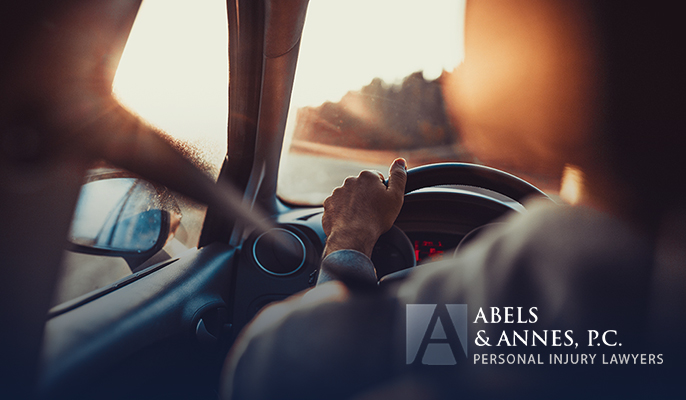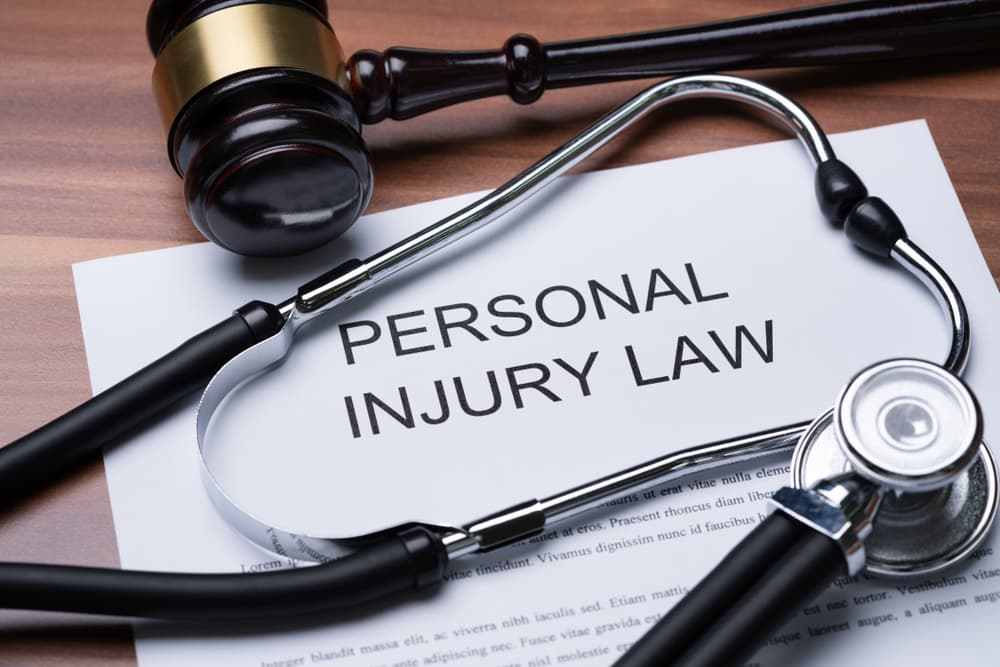A personal injury, in legal terms, is any harm to your body, mind, or emotions caused by someone else's carelessness or wrongful act. It ranges from a broken bone in a car crash to the lasting trauma from a serious fall.
These cases hinge on a legal concept called negligence, which simply means someone had a responsibility to act with reasonable care and failed to do so, causing your injury. Proving this is challenging. Insurance companies for the at-fault party are businesses and they must balance paying claims with protecting their profits. They will conduct a thorough investigation, looking for reasons to argue you were partly at fault to reduce what they have to pay.
However, Illinois law provides a clear path for you to pursue financial recovery for your medical bills, lost wages, and the personal impact of the injury. If you have a question about your situation and what your options are, call us at (312) 924-7575.
Key Takeaways for Personal Injury Types
- Different types of accidents have different legal rules. A car accident claim is handled differently than a workplace injury or a slip and fall on someone's property.
- The severity of the injury dictates the legal strategy. Catastrophic injuries require planning for a lifetime of care, which makes the legal case much more complex than a claim for a minor fracture.
- You may recover damages even if you were partially at fault. Illinois law allows you to pursue compensation as long as you are not more than 50% responsible for the incident.
Injuries From How We Get Around: Transportation Accidents

Millions of people are injured in traffic-related incidents every year. In a recent year alone, an estimated 42,915 people died in motor vehicle crashes in the U.S. These incidents are sudden and disruptive.
When an accident occurs, the physical toll manifests in numerous ways, some immediate and others that develop over time. Awareness of these potential injuries is a key part of protecting your health and your rights.
What are the most common injuries after a vehicle crash?
- Whiplash and Neck Injuries: A sudden jolt causes soft tissue damage in the neck. Pain might not show up for hours or even days, making it important to seek a medical evaluation even if you feel fine initially.
- Traumatic Brain Injuries (TBIs): Concussions are a frequent result of a crash. The CDC notes that motor vehicle crashes are a leading cause of TBI-related hospitalizations. Symptoms are sometimes subtle, like confusion, memory problems, or mood changes, and require professional diagnosis.
- Spinal Cord Damage: This leads to partial or full paralysis and requires immediate, specialized medical care. The long-term consequences of a spinal cord injury are life-altering, involving extensive rehabilitation and ongoing medical needs.
- Broken Bones and Fractures: The sheer force of a collision easily breaks bones in the arms, legs, ribs, and pelvis. These injuries typically require surgery, casting, and a long period of recovery.
Does it matter what kind of vehicle was involved?
The type of vehicle involved in an accident significantly influences the complexity of a personal injury case. Different regulations, insurance policies, and standards of care apply to different modes of transportation.
- Car Accidents: These are the most frequent type of claim we handle at Abels & Annes, P.C. They typically involve determining which driver was negligent based on traffic laws.
- Truck Accidents: These cases involve complex state and federal regulations for trucking companies. The injuries are typically severe due to the size and weight difference between a commercial truck and a passenger vehicle.
- Motorcycle Accidents: Riders have little protection, which means injuries are usually serious and life-altering. We commonly see severe road rash, broken bones, and head injuries in these cases.
- Pedestrian and Bicycle Accidents: People on foot or on a bike are completely exposed. Drivers who are distracted or fail to yield the right-of-way cause devastating harm.
- Locally Relevant Note: In cities like Chicago, we see a growing number of injuries involving e-scooters and rideshare vehicles (Uber/Lyft). These cases have unique insurance complexities that we are experienced in handling.
When You're Hurt on Someone Else’s Property
You have a reasonable expectation of safety when you visit a grocery store, a friend's apartment building, or a public park. Property owners in Illinois have a legal duty to keep their premises reasonably safe from known hazards. When they fail to do so, and you get hurt as a result, it falls under an area of law called "premises liability."
What does a premises liability case look like?
- Slip and Fall Incidents: These are very common. The CDC reports that falls are a leading cause of injury, especially for older adults. A slip and fall case stems from a wet floor without a warning sign, icy, unsalted sidewalks in the winter, poorly lit stairwells, or uneven pavement in a parking lot.
- Negligent Security: Property owners in high-crime areas may have a duty to provide adequate security measures, such as working locks, proper lighting, or security personnel. If you are assaulted due to a lack of these measures, you might have a claim against the property owner for failing to provide a safe environment.
- Dog Bites: In Illinois, dog owners are generally held responsible if their animal injures someone, provided the injured person was not trespassing or provoking the dog. The law holds owners accountable for the actions of their pets.
- Elevator and Escalator Accidents: Poor maintenance leads to sudden stops, falls, and other mechanical failures that cause serious harm. These cases typically involve investigating maintenance records to prove negligence on the part of the property owner or a service company.
Injuries That Happen at Work
Your job shouldn't put your health at risk. Yet, private industry employers reported nearly 2.8 million nonfatal workplace injuries and illnesses in a recent year.
When you are injured at work, the situation is different from other types of personal injuries. Illinois has a workers' compensation system designed to provide benefits for medical treatment and lost wages, regardless of who was at fault. This is your primary path for recovery.
However, sometimes another party, not your employer, is responsible. This is called a "third-party claim."
How do you know if you have more than a workers' comp claim?
- Workers' Compensation: This is an insurance system your employer pays into. It covers most on-the-job injuries. In exchange for these no-fault benefits, you generally cannot sue your employer directly for the injury.
- Third-Party Claims: Consider these examples:
- You are a delivery driver and are hit by a negligent driver while on your route. You would have a workers' comp claim and a personal injury claim against the at-fault driver.
- You are injured on a construction site because of a defective power tool. You could have a workers' comp claim and a product liability claim against the tool's manufacturer.
- You are working at a client's location and slip on a spill they failed to clean up. You may have a workers' comp claim and a premises liability claim against the property owner.
A third-party claim allows you to pursue damages for pain and suffering, which workers' compensation does not cover. Our firm, Abels & Annes, P.C., assesses your situation to see if both types of claims are possible.
When an Injury Changes Everything: Catastrophic Harm

Some injuries are so severe that they permanently alter the course of a person's life. They rewrite every aspect of your daily routine, your ability to work, and your relationships. These are known as catastrophic injuries. These cases are about planning for a lifetime of necessary care, and the legal approach must reflect that reality.
The focus shifts from short-term recovery to long-term financial stability and quality of life.
What are examples of catastrophic injuries?
- Traumatic Brain Injuries (TBIs): A severe TBI affects cognitive function, personality, and motor skills. The injured person might need lifelong medical assistance, rehabilitation, and home modifications.
- Spinal Cord Injuries: Damage to the spinal cord results in paralysis (paraplegia or quadriplegia), requiring wheelchairs, accessible vehicles, and constant medical support.
- Amputations: The loss of a limb is a physically and emotionally traumatic event that requires extensive physical therapy, prosthetic devices, and psychological counseling.
- Severe Burns: Third or fourth-degree burns lead to disfigurement, chronic pain, and a high risk of infection, typically requiring multiple surgeries and skin grafts.
Why are these cases legally different?
The financial stakes are much higher. A case must account for future medical costs, loss of earning capacity over a lifetime, and the permanent change in the quality of life.
We work with life care planners and economists to project these costs accurately. The goal is to secure a personal injury settlement or verdict that provides financial stability for the rest of the injured person's life, ensuring they have the resources for whatever challenges may arise.
How Illinois Law Determines What You Can Recover
After an injury, a common question is, "What am I entitled to?" In Illinois, the compensation you pursue is referred to as damages. These are meant to restore you, as much as possible, to the position you were in before the harm occurred.
There are generally two types:
- Economic Damages: These are tangible, calculable losses. Think of them as anything with a receipt or a price tag:
- Medical bills (past and future)
- Lost wages and income
- Diminished future earning capacity
- Property damage
- Non-Economic Damages: These compensate you for the intangible, human losses that don't have a clear price tag:
- Pain and suffering
- Emotional distress
- Loss of a normal life
- Disfigurement
What if I was partially at fault?
Illinois follows a "modified comparative negligence" rule. Simply put, you still recover damages as long as you are not found to be more than 50% responsible for the incident. Your total compensation will be reduced by your percentage of fault. For example, if you are found 10% at fault for an accident, your final award is reduced by 10%.
Frequently Asked Questions About Personal Injury Claims
How long do I have to file a personal injury lawsuit in Illinois?
In most cases, the Statute of Limitations in Illinois gives you two years from the date of the injury to file a personal injury lawsuit lawsuit. There are exceptions, especially for injuries involving children or government entities, so you must act promptly.
What if I can't afford a lawyer?
We, like most personal injury firms, handle cases on a contingency fee basis. This means you pay no attorney's fees unless and until we recover money for you. Our fee is a percentage of the total recovery.
Do I have to go to court?
The vast majority of personal injury cases are settled out of court through negotiations with the insurance company. However, we prepare every case as if it will go to trial to ensure we are negotiating from a position of strength.
The other person's insurance adjuster called me. Should I talk to them?
Do not give a recorded statement or sign any documents without first speaking to an personal injury attorney. The adjuster's role is to protect the company's financial interests, and anything you say may be used to argue against your claim.
What is my personal injury case worth?
There is no simple formula. The value depends on many factors, including the severity of your injuries, the total of your medical bills and lost wages, the long-term impact on your life, and the amount of evidence showing the other party's fault.
Your Next Step Toward Recovery

We regularly help people in Chicago and across Illinois get back on their feet after a serious injury. The sooner we begin gathering evidence and protecting your rights, the stronger your case will be.
For a free, no-obligation consultation about your situation, call Abels & Annes, P.C. today at (312) 924-7575.



